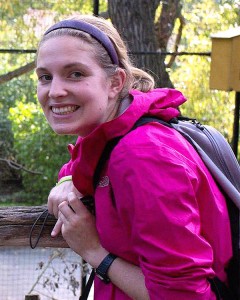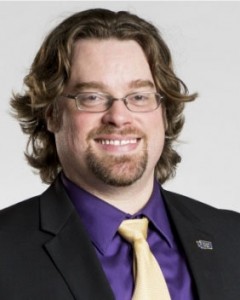“So what do you want to do when you graduate?” There is no better way that a well-meaning family aunt or uncle strikes fear into the heart of an unsuspecting grad student or postdoc over slices of turkey at the holidays. Although this question is well meant, it often makes you squirm and feel uncomfortable. Here are some tips to help you think about this quest:
What Do You Want To Be When You Grow Up?
About the answer to this – I will tell you what I tell my own students: “I have good news and bad news for you …” The good news is that you aren’t alone. On most days, I’m in the same boat with you, still trying to figure out what I want to be (n.b., please do not tell my department chair!). The bad news, however, is that if you don’t give this some serious thought, you run the risk of missing out on key opportunities in your immediate future.
NOT “Can I Become Faculty?”
Importantly, there is an absolutely wrong question to be worried about: “Can I become faculty?” I can’t emphasize enough that the question is not “can I do it?” The answer to this is an unequivocal “YES.” You already earned a Ph.D. and a postdoc at a world-class institution. If you are willing to put in the work to find mentors, network, learn the rules of the game and be disciplined about executing a plan, then you can do it.
BUT “Should I Become Faculty?”
This is the far more interesting question to ask. Consider your time as an undergraduate and reflect upon your experience with faculty. Now think of life as a graduate student and your interactions with professors. Finally, postdocs can do this exercise yet again. How have things changed? Faculty, perhaps more than most other professions, wear many different hats, usually at the same time. You have viewed the faculty experience up close, leading to an important conclusion: you may not really know how a professor spends all of their time. I highlight this simply to say that before you make one of the most important decisions of your life, you should learn more about the life of a professor.
Is Being Faculty A Good Fit?
I advocate that instead of worrying on the details of the future (Will I get hired? Will get I tenure? Will I get funding?), you spend time trying to learn if being faculty is a good fit for you. The happy news is that faculty love to talk about themselves, and if you do a bit of informational interviewing, you can learn a lot about how faculty you admire (and aspire to be like) spend their time. While you already know they work a lot, you should find out how they spend their time, what they like about their job, and importantly, what they don’t like. Try to do this with several faculty you admire; if possible try to do it with faculty at different types of institutions and with faculty of different rank.
Imagine YOUR Life As A Professor
This process works to create a clear picture of what YOUR life as a professor would look like. This is the easiest way to answer the question of whether you should do it or not. Being a professor is an awesome job, and I truly love it. But I recognize it is not for everyone. My last piece of advice is this – once you decide that you should become a professor, don’t waste any time! Put your full effort into making your dream become a reality – I already know you CAN do it, why not prove me right?
Acknowledgement: This guest blog post was graciously provided by Dr. Jim Pfaendtner, Associate Profession in Chemical Engineering, who was the keynote speaker at OPA sponsored professional development event Set Up for Academic Success: Getting Funding For Your Research Program in April 2017.

 Neighborhood: Fremont
Neighborhood: Fremont